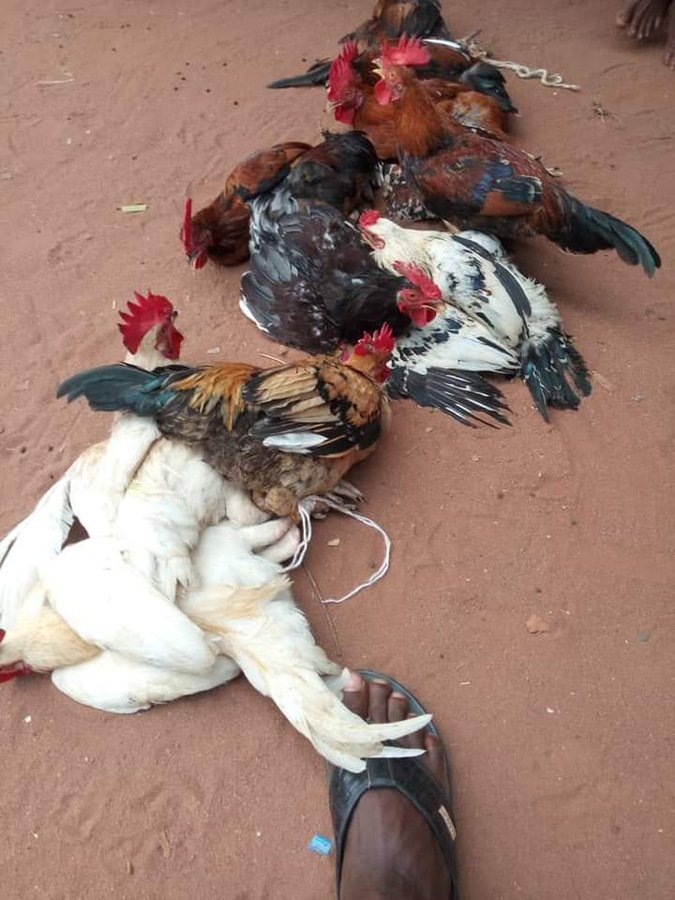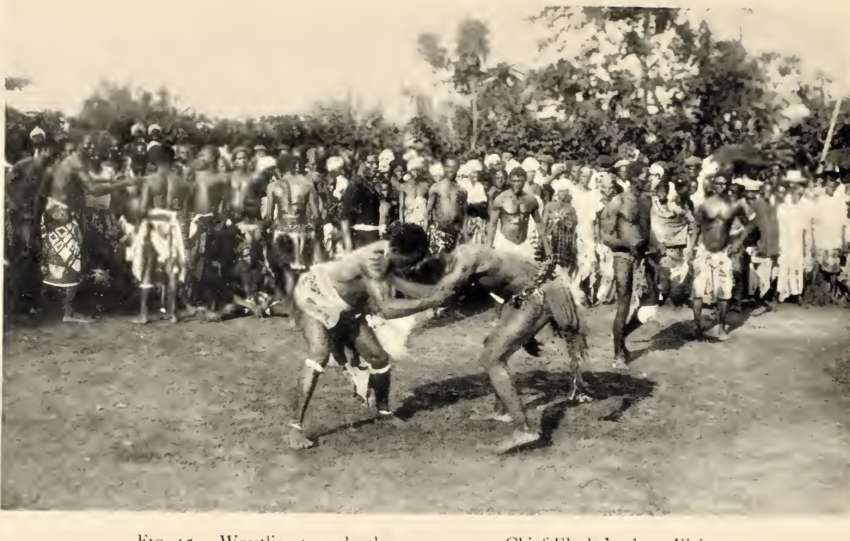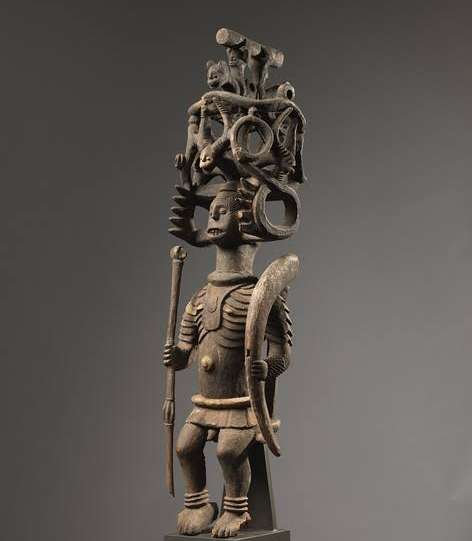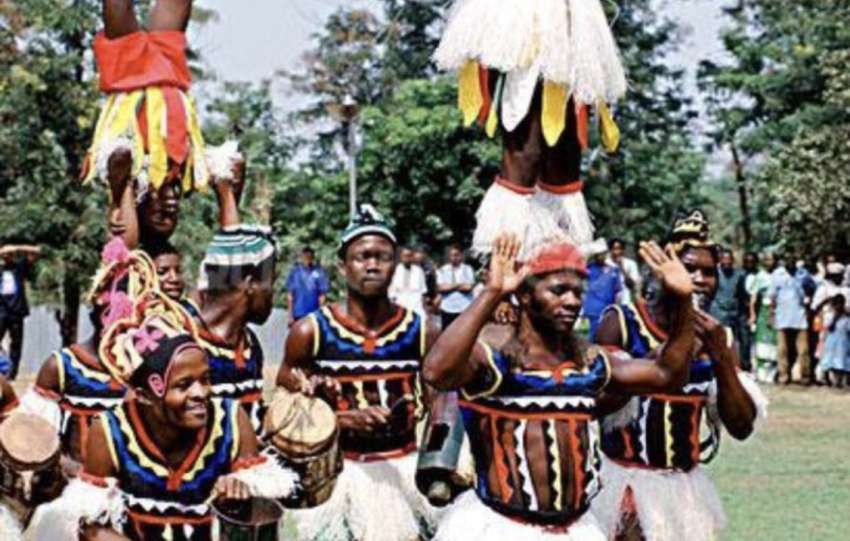
The Igbo people have rich cultural and spiritual traditions, and the rooster known as Ọkụkọ Ani is one of the most important animals in their rituals. The rooster is more than just an animal to the Igbos; it is a symbol of fertility, protection, and a very important part of spiritual rituals. In this article, we will explore the role of the sacred rooster in Igbo culture and explain its spiritual and cultural significance.
A Connection Between the Physical and Spiritual Worlds
Igbos believe that the physical and spiritual worlds are connected. They believe in many gods and spiritual forces that play a part in their daily lives. One of the most important spiritual figures in Igbo land is Ani, the earth goddess. Viewed as the mother of all life, she is responsible for the land’s fertility, the success of the crops, and the health of the people.
In Igbo culture, animals, plants, and natural forces are often believed to possess some spiritual force. Some animals, such as the rooster, are seen as messengers serving the people and the gods. The rooster is considerably important because it represents the power of Ani and the renewal of life.
The Symbolism of the Sacred Rooster
The rooster, or Ọkụkọ Ani, has many symbolic meanings in Igbo culture. These meanings reveal why the rooster is so important in Igbo rituals.
A Symbol of Time and the Universe
The rooster is well connected with the cycle of time: the crowing in the morning announces a new day. In Igbo culture, time is seen as a cycle rather than a straight line. This is shown in the natural cycle of the rooster, crowing each morning to signal the renewal of life, which happens on a daily basis. It symbolizes the connection between the physical and spiritual forces that control the world of time and nature.
A Symbol of Fertility and Prosperity
The rooster is a sign of fertility. This is particularly important in an agricultural society like the Igbo, where the success of crops is vital to the community’s survival. The rooster symbolizes the hope for a good harvest and the wealth that comes from a fertile land. By offering a rooster during rituals, the Igbo people ask the gods for good crops, healthy livestock, and prosperous marriages.
A Symbol of Sacrifice and Renewal
In many Igbo rituals, especially to Ani, the earth goddess, the rooster is sacrificed to enlist the blessings of the gods and to make sure life would be reborn. Sacrificing a rooster is said to invite good health, protection, and success upon the people. This means the cycle of life in which, through death, there is new life and continuity of spiritual energy.
A Protector Against Evil
The rooster is also believed to have the power to shield people from evil forces. The crowing every morning drives away bad spirits and negative energies. Many Igbo households keep the rooster not just for eggs or meat, but they believe that the rooster brings protection and good luck. The rooster’s role as a protector extends beyond the home and into various rituals aimed at curing diseases or warding off misfortune.
The Role of the Rooster in Igbo Rituals
The rooster plays a major role in several important Igbo rituals. These rituals are connected to the spiritual life of the community and the protection of land, crops, and families.

1. Rituals to Honor Ani (The Earth Goddess)
One of the most important rituals involving the rooster is the sacrifice made to Ani, the earth goddess. Ani is a deity responsible for the fertility of the land, therefore, offering a rooster during farming festivals is a way of asking for good crops and plenty of harvest. For example, during the Iri ji (New Yam Festival), roosters are sacrificed to honor Ani and request blessings for the year’s harvest. This sacrifice is made so that the crops will grow well, and the community will have plenty of food to eat.
2. Marriage Rituals
Roosters are also important in wedding ceremonies. In Igbo culture, a rooster (Ọkụkọ Ani) is often given as part of the bride price, this symbolizes the beginning of a new life for the couple. It is believed that the rooster helps guarantee fertility and blessings for the couple, giving them the capacity to have children and a successful marriage. The sacrifice of Ọkụkọ Ani during the wedding ceremony is to plead with the gods to save and bless the couple’s new life together.
3. Funeral Rituals
Roosters also play a part in funeral rituals: as soon as somebody dies, the Igbo people believe that the soul of the dead person needs guidance to the spiritual world. Sacrificing a rooster is meant to guide the soul safely and prevent harm from reaching the family. Sometimes, a rooster might be sacrificed to appease the dead and to pray to the ancestors for their protection and blessings upon the family.
4. Divination and Healing Rituals
The rooster is also used in Igbo divination and healing practices.
During such rituals, the rooster’s behavior is watched closely, while his actions are believed to carry vital messages from the gods. Roosters are used in spiritual healing to cure illness or to bring good fortune. Their feathers, blood, and other body parts are sometimes used in medicines or charms to restore balance and health.
References
- Akinyemi, A. (2018). The sacredness of animals in African cultures: Symbolism and significance. Oxford University Press.
- Eze, D. I. (2021). The role of symbolism in Igbo rituals: Understanding sacred animals in spiritual practices. Journal of African Spiritual Studies, 15(3), 45-59.
- Igbo, E. A. (2019). Rituals and customs in Igbo culture. Igbo Heritage Publishing.
- Okafor, C. N. (2017). The earth goddess Ani and the sacredness of agricultural rituals in southeastern Nigeria. African Traditional Religion Review, 8(2), 113-128.



